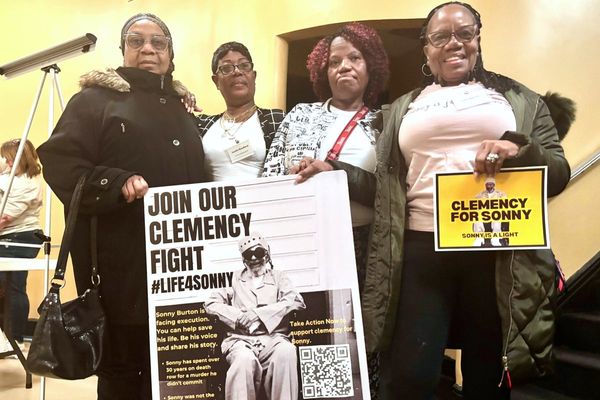WHAT IT'S ABOUT: Dr. Harrison Brennan (Corey Reynolds) is a doctor at a major Chicago hospital. One night at the end of his shift, his husband, Daniel Calder (Noah Wyle) calls to ask if he would get some milk on the way home. At the convenience store, a robbery takes place, and when Brennan comes to the aid of the clerk, Patrolman Paul Evans (Noel Fisher) charges through the door and shoots him in the back, mistaking him for the robber.
Six months later, Daniel and his adopted daughter, 17-year-old Jira (Aliyah Royale), are waiting to learn whether federal charges will be filed against Evans. Still deep in mourning, Jira also wants to find her birth mother who lives on the other side of Chicago and has reason not to want to meet Jira. Tia Young (Emayatzy Corinealdi) is in a hard-fought race for alderman in Chicago's Sixth Ward, against a ruthless incumbent, Nathan Gordon (Glynn Turman). She had Jira when she was 15, and Gordon could use that against her.
This eight-parter _ created by Caitlin Parrish and produced by Ava DuVernay and Greg Berlanti _ will run in two-hour blocks on consecutive Sundays.
MY SAY: While the most watched and most profitable, CBS hasn't exactly been the most woke of the major TV networks. Therefore "The Red Line" arrives as both risk and statement for it. For the often conservative, sometimes hidebound, obstinately traditional CBS, the risk seems obvious enough _ this comes at the start of May sweeps. The statement itself is a little less clear.
The big moment is in the closing seconds of the series when Tia spells it out for supporters and viewers: "My husband drives the Red Line train and it runs north to south, through every different kind of neighborhood," she says. "But it's up to us to make those neighborhoods a city.
"Call me a crazy optimist but if we can get Chicago right, then maybe we can get America right."
This speechifying is part of a political campaign so both Tia and "The Red Line" are forgiven. But the sentiment is still a good distillation of "The Red Line" _ optimistic, upbeat, occasionally melodramatic, occasionally heartfelt. "The Red Line" may be the perfect example of how a major network _ or specifically this major network _ applies the apple polish to a fictional shooting in a real city so bitterly divided over street violence and Black Lives Matter. There are heroes and bad guys. There's a core mother-daughter storyline that instantly forges a bond to an audience that may be a little less comfortable with the same-sex married one. The moral of the story is clear, no gray zone here.
That "The Red Line" often does as well as it does is a tribute to the cast and the overall production. But apple polish is still apple polish: There's a real world out there with real-world shootings of unarmed black men by the police, with horrific consequences, and a vast gulf of mistrust that separates whole communities from law enforcement. No CBS miniseries, however worthy the intentions, could probably get its head around that reality. "The Red Line" certainly tries, but falls short.
One problem is that it feels like a series of hypothetical situations pieced together in that real-world setting _ what if a prominent African American doctor in Chicago was shot in the back by a cop and what if a piece of evidence went missing that absolved the cop?
There's a lot of air between those "what ifs" _ stuff like grand juries and press coverage and community reaction and political blowback and on and on. "The Red Line" certainly touches on some of this, but by beginning six months after the shooting occurs it misses most of it. Critical questions that'd be addressed in a real-world setting are ignored, including a huge one _ how does the most critical piece of evidence go missing?
Also missing here is the person "The Red Line" begins with. Poor Harrison Brennan is gone by the opening-night credits. There's a brief flashback glimpse of him much (much) later but otherwise he's gone for good. Who was this unique person? What sort of life did he lead? Who were those he loved and, in turn, who were those besides his immediate family who loved him?
Instead, he's reduced to a plot device. A shame. He seems like the most interesting character of all.
BOTTOM LINE: Often worthy and heartfelt, "The Red Line" still can't get its arms around the real-world pain and suffering (and consequences) that it has to get its arms around.







